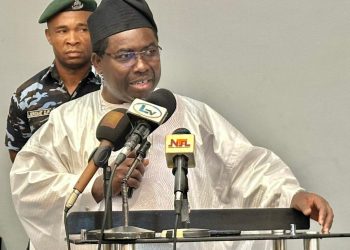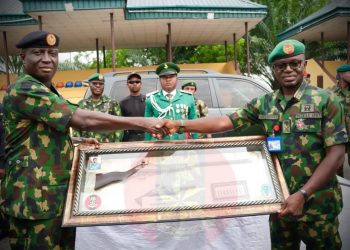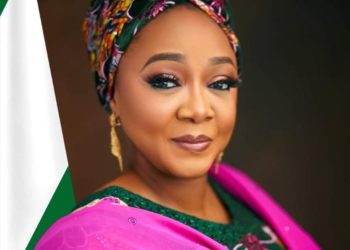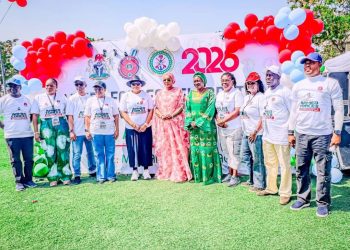The Chairman of National Population Commission (NPC), Hon. Nasir Isa Kwarra has emphasized the critical role of partnerships in co-developing population data for national planning.
In a statement made available to the media at the weekend, Kwarra stated this while delivering a paper titled ‘The Power of Partnerships: Co-Developing Population Data for National Planning’ at the 10th Anniversary of the WorldPop in Southampton, United Kingdom on 9th October 2024.
He said that for a country as populous and diverse as Nigeria, with an estimated population exceeding 200 million, harnessing the collective strengths of various stakeholders through strategic partnerships is not just advantageous but indispensable.
Kwarra underscored that accurate population data serves as the backbone for resource allocation and policy formulation across vital sectors such as healthcare, education, and infrastructure. He pointed out Nigeria’s unique challenges, including its vast geography and cultural diversity, which complicate data collection efforts.
“Without reliable data, planning becomes speculative, increasing the risk of resource misallocation,” he stated.
The NPC Chairman highlighted that successful population data development hinges on collaborative relationships among various stakeholders, including government agencies, NGOs, and international organizations. He noted that bringing together these diverse stakeholders helps pool resources, share expertise, and work towards a common objective of enhancing data quality and accessibility.
Kwarra outlined several benefits of partnerships including resource mobilization, expertise sharing, capacity building and innovation.
The Digital NPC Chairman cited several successful partnerships that have significantly impacted Nigeria’s population data landscape. He stated that collaborations with organizations like the UNFPA, UNECA, and the United States Census Bureau have prepared NPC for Nigeria’s first fully digital census, a transformative initiative for demographic data collection. He said, ‘Throughout the preparation phase, the NPC has leveraged both national and international expertise, resulting in the generation of a robust geospatial frame for the country and the enhancement of Geographic Information System (GIS) capabilities. These advancements are invaluable in our data-driven future, where spatial data is crucial for effective planning and resource allocation.
‘Organizations such as the United Nations Population Fund (UNFPA), the United Nations Economic Commission for Africa (UNECA), and the United States Census Bureau have provided essential technical expertise and resources.’
NPC Boss stressed that demographic sample surveys, supported by entities like USAID, World Bank, UNFPA, Global Fund and the Bill and Melinda Gates Foundation provide critical insights for national planning. He said that a notable example of such collaboration is the recently concluded 2023-2024 Nigeria Demographic and Health Survey (NDHS), which provided comprehensive data on health, socio-economic, and demographic indicators and a follow-up survey, the 2024 Verbal and Social Autopsy (VASA) survey which aims to identify factors contributing to maternal and child mortality. ‘These partnerships ensure that the NPC can deliver high-quality data that supports informed decision-making and effective policy formulation,’ he said.
Kwarra acknowledged that in partnership with UNICEF, NPC is modernizing its CRVS system to improve registration rates.
‘This modernization effort involves deploying VitalReg, a digitally integrated platform that addresses previous challenges such as low registration rates and fragmented data systems as well as provides a cohesive digital solution for the effective registration of vital events, including births, deaths, migrations, and adoptions,’ he stated.
He also emphasized that NPC’s partnerships with the Nigerian Postal Service (NIPOST) have enhanced postal services using census data, demonstrating the multifaceted applications of population data.
He noted, ‘This collaboration leverages the detailed spatial data collected during census activities to refine Nigeria’s postcode system, improving mail delivery efficiency and enabling location-based services. The NPC provided geospatial expertise and data analysis, while NIPOST utilized its extensive infrastructure for the implementation of the postcode system.’
Kwarra stated that NPC’s partnership with WorldPop through the GRID3 initiative focuses on geospatial data analysis, filling gaps in population data and supporting public health interventions. He said, ‘WorldPop has collaborated with NPC in producing high-resolution Hybrid Enumeration Areas and population distribution maps, which are essential for filling gaps in population data, especially in hard-to-reach areas of Nigeria.’
While praising the benefits of partnerships, Kwarra acknowledged challenges such as differing organizational priorities, sustainability and data privacy concerns. He advocated for clear objectives, effective communication, and capacity building as strategies to strengthen these collaborations.
Looking ahead, Kwarra stressed that the demand for robust population data will only grow, driven by challenges like climate change and urbanization. He called for continued collaboration across sectors to ensure timely and accurate data-driven responses.
In conclusion, Kwarra urged stakeholders to commit to nurturing partnerships that can enhance Nigeria’s capacity to generate high-quality data, ultimately improving the lives of its citizens. “It is through these collaborations that we can overcome the complexities of our demographic landscape,” he asserted.
In the same vein, the Director-General of National Population Commission, Dr. Osifo Tellson Ojogun, who was among the panelists who discussed The Future of Population Data at the WorldPop 10th Anniversary Event, emphasized that it’s by fostering strong partnerships, we hope to enhance our capacity to generate high-quality data that informs policy, drives development, and ultimately improves the lives of our citizens.
‘Let us commit to nurturing these collaborations, guided by mutual respect, shared vision, and dedication to the betterment of our nation and the global community,’ Osifo said.














